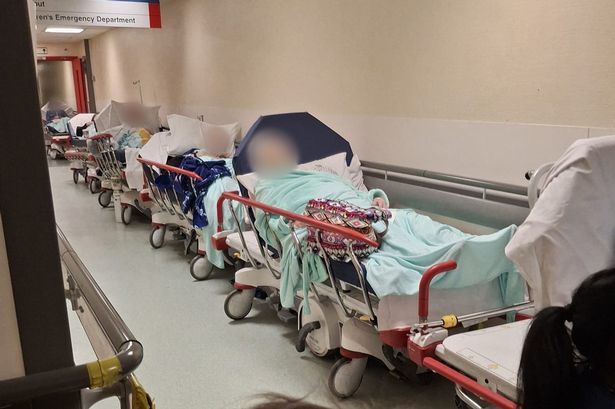The agonizing reality of overwhelmed healthcare systems has been brought into stark relief by the harrowing accounts of nurses forced to witness patients dying slowly and undignified deaths in hospital corridors. These dedicated professionals, driven to tears by their powerlessness, describe scenes of suffering that underscore the devastating consequences of understaffing, overcrowding, and a lack of essential resources. Patients, often elderly and vulnerable, are left languishing for hours in busy hallways, their basic needs unmet, as nurses struggle to prioritize care amidst the chaos. The emotional toll on these frontline workers is immense, as they grapple with the moral distress of being unable to provide the level of care they know their patients deserve. One nurse’s discovery of a deceased patient hidden beneath a pile of coats paints a particularly chilling picture of a system stretched beyond its breaking point, where even the most basic human dignity is tragically lost.
This crisis of care is not an isolated incident; it reflects a systemic issue plaguing healthcare systems worldwide. The increasing demand for medical services, coupled with shrinking budgets and staffing shortages, has created a perfect storm of despair in many hospitals. Nurses, the backbone of patient care, are bearing the brunt of this crisis, constantly juggling overwhelming workloads with limited resources and support. Their pleas for better staffing levels, improved working conditions, and increased investment in healthcare often go unheard, further exacerbating their feelings of frustration and helplessness. This ongoing struggle not only jeopardizes patient safety and well-being but also contributes to the widespread burnout and exodus of experienced nurses from the profession, further deepening the crisis.
The ethical implications of this situation are profound. Patients, entitled to compassionate and dignified care, are instead subjected to prolonged suffering, neglect, and a loss of basic human rights. The inability to provide adequate pain relief, comfort, and privacy in the final moments of life represents a fundamental failure of the healthcare system. Nurses, bound by ethical codes to provide the best possible care, are placed in an impossible position, forced to make difficult choices about who receives attention and who is left to wait, often with devastating consequences. This moral injury, compounded by the emotional trauma of witnessing preventable suffering, can have long-lasting psychological effects on these dedicated professionals.
The stories emerging from overwhelmed hospitals serve as a wake-up call for immediate action. Addressing this crisis requires a multifaceted approach that focuses on both short-term and long-term solutions. Immediately, hospitals need increased funding to address staffing shortages, improve bed capacity, and ensure adequate resources are available to provide essential care. In the long term, systematic changes are necessary to address the underlying issues contributing to the crisis, including investing in preventative care, expanding access to community-based healthcare services, and reforming healthcare financing models to ensure sustainable and equitable access for all.
Furthermore, it is crucial to empower nurses and give them a greater voice in shaping healthcare policy. Their firsthand experiences and intimate understanding of the challenges facing the system provide invaluable insights into developing effective solutions. Supporting their well-being through mental health resources, reducing administrative burdens, and promoting a culture of respect and recognition within the healthcare environment are essential steps towards retaining experienced nurses and attracting new talent to the profession. Ignoring their pleas for change only perpetuates the cycle of crisis and undermines the foundation of a functioning healthcare system.
Ultimately, the tragic scenes unfolding in hospital corridors represent a societal failure to prioritize the health and well-being of its citizens. The dignity of every individual, particularly in their most vulnerable moments, must be paramount. Investing in a robust and equitable healthcare system is not just a matter of economics, but a moral imperative that reflects our shared humanity. The tears and anguish of nurses serve as a poignant reminder of the human cost of inaction and a call to action for all of us to demand a better future for healthcare. We must listen to their voices, learn from their experiences, and work together to create a system that prioritizes compassionate care and ensures that no one suffers a slow, undignified death in a crowded hospital corridor.














